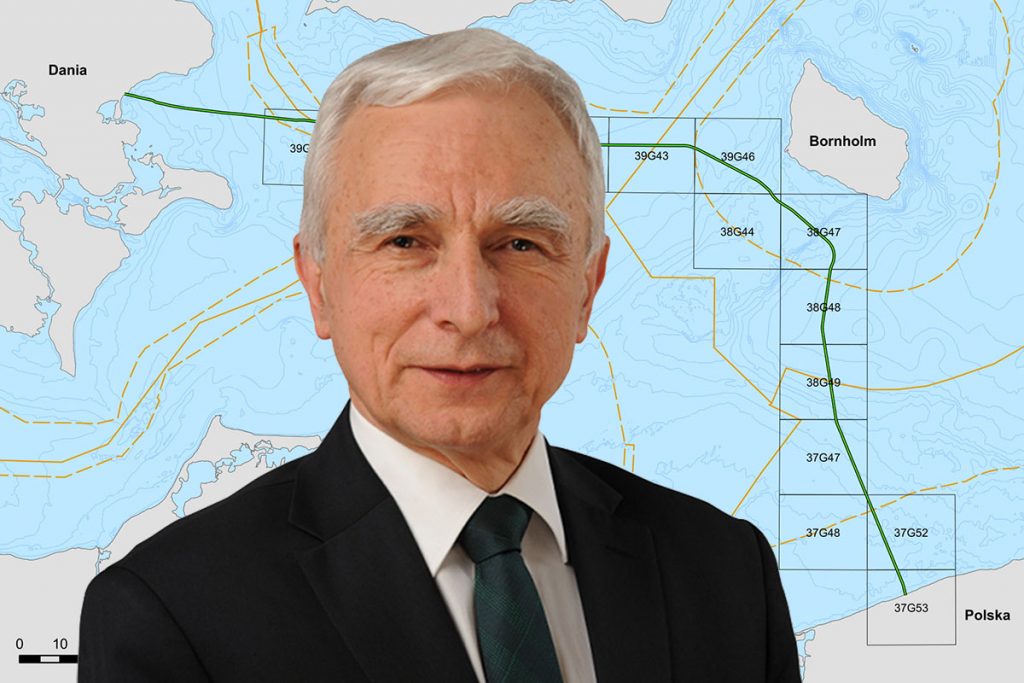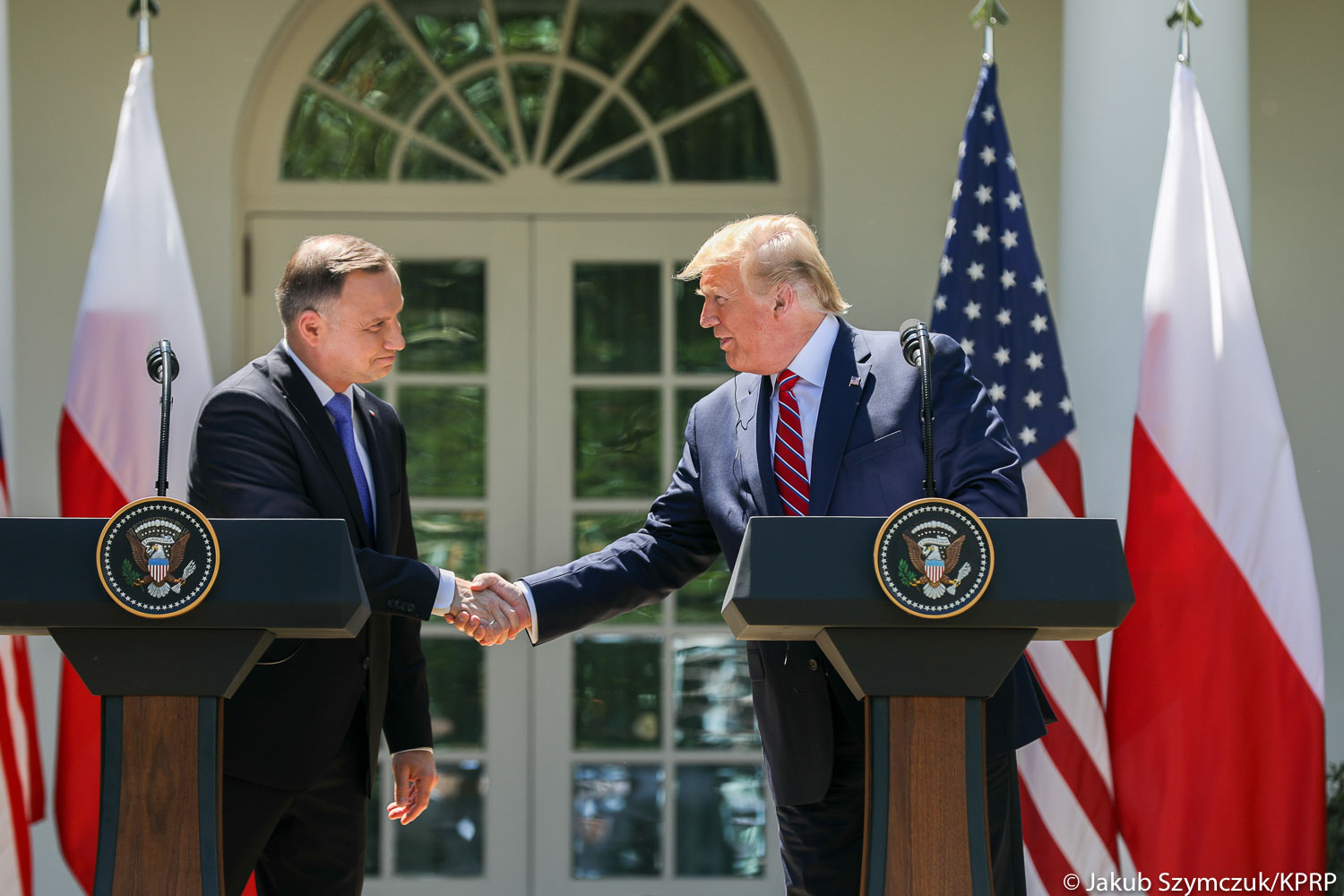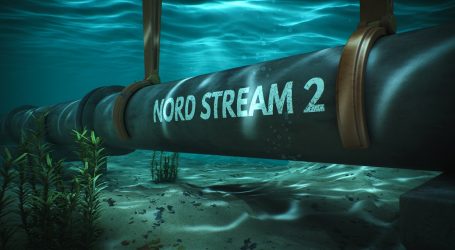Naimski: withdrawal from Russian gas will take Europe up to three years
It will take Europe two-three years to move away from Russian gas. The missing sections of gas pipelines that will connect the terminals need to be built first, the Secretary of State, Government Plenipotentiary for Strategic Energy Infrastructure, said in an interview with RMF radio on Tuesday, March 1.
Piotr Naimski was asked during a radio interview whether “it is possible to fill up petrol in Poland without giving money to Putin” and without supporting the Russian budget; he replied that it is not possible.
“Today, unfortunately, this cannot be done, as two-thirds of the crude oil processed in Polish refineries, i.e. producing fuels for the Polish market, still comes from Russia” – admitted the State Secretary.
Naimski assessed that to change this situation is a “long process”.
– Diversification, i.e. diversifying the directions of crude oil supplies to Poland, is being implemented. Not so long ago, we started with over 90 per cent share of Russian oil in Polish refineries. Today in Płock, it is 60 per cent – he stressed.
He estimated that the war in Ukraine “changes the perspective” because “it is worth paying more”, and “solidarity and security have to cost money”. He pointed out that “we have an infrastructure that allows us to import any oil to Polish refineries in the required quantity” in Poland.
– What is happening in Poland at the moment is the economic considerations of our refineries. They have to give way to the fact that this money pumped into Russia is turning against us. This is a situation that is not only a Polish situation but also a European one – Naimski said.
He added that it was a matter of a “joint European decision”.
“We are one step away from making this decision. A decision that both gas and oil will stop being bought by Europeans in Russia” – stressed the government’s plenipotentiary for Strategic Energy Infrastructure. He noted that it should be a “common European decision”, stipulating that it would be followed by an increase in prices, although it is unknown how much.
Asked how long it would take to switch away from Russian gas, Naimski estimated “two to three years”.
– We need to build the missing sections of gas pipelines that will connect the existing terminals. The capacity or possibilities to receive gas in terminals and gas ports in Western Europe are large and still unutilised. However, what is missing are the gas pipelines that will feed this gas from the terminals into the transmission grids. This will take some time. It is a question of strategic decisions and money – he pointed out.
He added that Europe would have a huge problem replacing Russian supplies overnight.
– Poland is in a better situation as we are implementing our strategy of diversifying the supply directions. Therefore, if we were to stop receiving Russian gas from the east overnight, we would be able to cope, admittedly in a state of crisis, and from the end of this year in normal circumstances – he assessed.
Speaking about the Baltic Pipe gas pipeline, Naimski assessed that “we are on track to complete this project according to the schedule and deadline set six years ago. In October, Baltic Pipe, the one to Denmark and Norway, will be ready, and full capacity will be launched by the end of the year. We have got confirmation from Denmark because today literally the Danish environmental agency has issued the additional, necessary permit”.
On Tuesday, March 1, gas transmission operators Gaz-System and Energinet said that work on the construction of the onshore sections of Baltic Pipe in Denmark could resume once the Danish Environmental Protection Agency had granted an environmental permit.
May 31 2021. The Danish Environmental and Food Appeals Board has revoked the environmental permit for the Baltic Pipe pipeline issued by the Danish Environmental Protection Agency on July 12 2019. The case was remitted to the agency for reconsideration, which meant that additional surveys and public consultations had to be carried out. These were completed at the end of February.
Due to the ruling on May 31 2021, Energinet stopped construction. However, later it resumed it on some sections because the Danish Environmental Protection Agency had no objections.
Baltic Pipe is a strategic project to create a new natural gas supply route from Norway to the Danish and Polish markets and end-users in neighbouring countries. The pipeline will transport ten bcm of natural gas per year to Poland and three bcm from Poland to Denmark. The investors are the transmission operators: Danish Energinet and Polish Gaz-System. According to the plans, it will start operating on October 1, 2022.
sources: Polish Press Agency/Baltic Pipe Project/PortalMorski.pl




